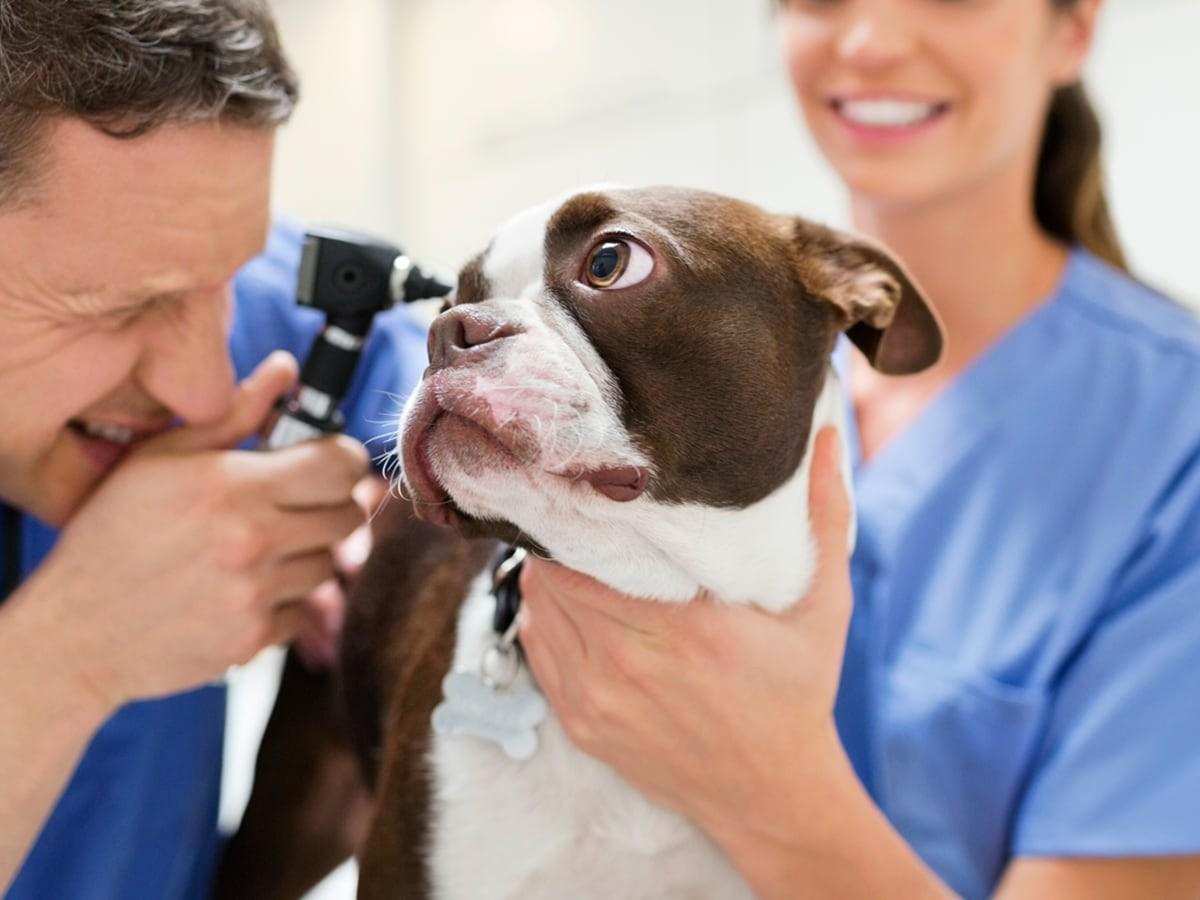Your dog will need to visit the vet occasionally to make sure it stays happy and healthy. Think of it like a doctor’s checkup but for dogs. We see the doctor routinely for things like physical exams and whenever we feel like something is wrong. This is the same approach you should take with your dog and their vet. The number of times you take your dog to the vet will depend on multiple factors, such as their age and medical history.
How Often Should You Take Your Puppy To The Vet?
Puppies will need to see the vet more often than adult dogs. The first year of your buddy’s life will be when you visit the vet the most frequently. Typically, they should be taken to the vet every three to four weeks until they are sixteen weeks old to receive their necessary vaccinations. This means at least four visits within the first four months of their lives!
Your puppy needs to get vaccinated just like a human baby does. Vaccines will protect them against diseases in the future. Common vaccines puppies will need are for distemper, parvovirus, kennel cough, rabies, Lyme disease, influenza and more. Talk to your vet about if your puppy will be receiving these and if there are any others they need. Your vet will also start flea and heartworm treatments to prevent them from getting these two things as well.
When your puppy is around six months old for small breeds and nine to fifteen months old for larger breeds, you should take them to the vet again to be spayed or neutered. This is highly recommended. These processes limit pet overpopulation. In addition, spaying your female dog prevents her heat cycles and eliminates howling, crying, erratic behavior, and bloody discharge. It can keep her safe from aggressive male dogs who want to mate and will drastically lower her risk of mammary cancer. Neutering male dogs eliminates his chances of getting testicular cancer as well as reduces inappropriate behaviors. Some of these behaviors include searching for a mate, marking territory inside the home, and fighting with other male dogs. Know more about the costs of spaying and neutering a dog.
How Often Should You Take Your Adult Dog To The Vet?
After your dog is a year old and is now an adult, he or she won’t need to see the vet as often if they are healthy. Regular wellness checkups should occur once a year. However, your dog’s breed or an underlying health condition may require more visits, so speak with your vet to discuss the best plan of action for future visit schedules. The checkups your dog will receive are important for monitoring their health and catching health issues early on. At the checkup, your vet will take a blood sample and sometimes a stool sample. The stool sample is used to detect intestinal parasites, which are a major cause of infection in pets. Blood testing helps veterinarians diagnose a multitude of health conditions as well as discern your pet’s health status and monitor the progression of some illnesses. In addition to testing, your vet will check your dog’s teeth for any infections and do a physical exam to make sure they’re maintaining a healthy bodyweight. They may recommend diet changes if your dog is over or underweight or if their tests come back with any problems.
Your dog may also be due for a booster shot for some of the vaccines they’ve already been given. Some of these boosters are done annually while others are conducted every three years. These vaccines will help continue to keep your dog safe from several illnesses.
Overall, the main purpose of an annual checkup is to understand your dog’s health levels and check them for any health issues. If they find anything concerning, they may order tests or treatments for your dog.
How Often Should You Take Your Senior Dog To The Vet?
When your dog gets older, it’s likely that they will begin to experience more health concerns. When they are between seven and ten, you should start taking your dog to the vet more often. It is recommended that senior dogs visit the vet for a checkup twice a year.
These checkups will be like the ones they experienced when they were younger. You can also expect a thorough physical examination to determine how your dog’s fitness levels are holding up. Your vet can also run tests on your dog’s blood and liver to look for common issues found in older dogs.
Hopefully you’ve been seeing a vet for years before your dog is a senior and all the preventative care you’ve done will help make old age more comfortable for your pet!
Signs You Should Take Your Dog To The Vet Immediately
Besides routine checkups, your dog may experience injuries or illnesses that require extra visits to the vet. The symptoms they experience can cover a wide range, but there are some telltale signs you should take your dog to the vet right away.
If your dog is ever exhibiting these signs, call your vet!
1. Difficulty breathing
2. Restlessness, excessive panting, inability to lie down comfortably, abdominal distention
a. These are all signs of “bloat,” which is a life-threatening situation for dogs. It requires immediate medical attention, so any dogs exhibiting these symptoms should be rushed to the closest vet.
3. Seizures
4. Collapse or extreme weakness
5. Profuse hemorrhage/excessive bleeding, or major known trauma
6. Prolonged and repeated vomiting or diarrhea
7. Struggling to urinate
8. Not eating or drinking
9. Coughing
10. Paralysis
11. Severe pain
12. Known exposure to poisons
a. Some common ones to look out for include chocolate, rodent bait, grapes and raisins, and human medications
Although this list includes some of the most common reasons for a dog-emergency, the list is not exhaustive. There are many reasons your dog may need to see a vet. A good rule of thumb is to call your vet anytime your dog isn’t acting themselves or you suspect they are in pain.

As Spot’s resident cat enthusiast, I am dedicated to researching and sharing information that helps pet owners take the best care of their pets. Pet ownership comes with it’s share of challenges, but my goal is to help make this journey easier.












